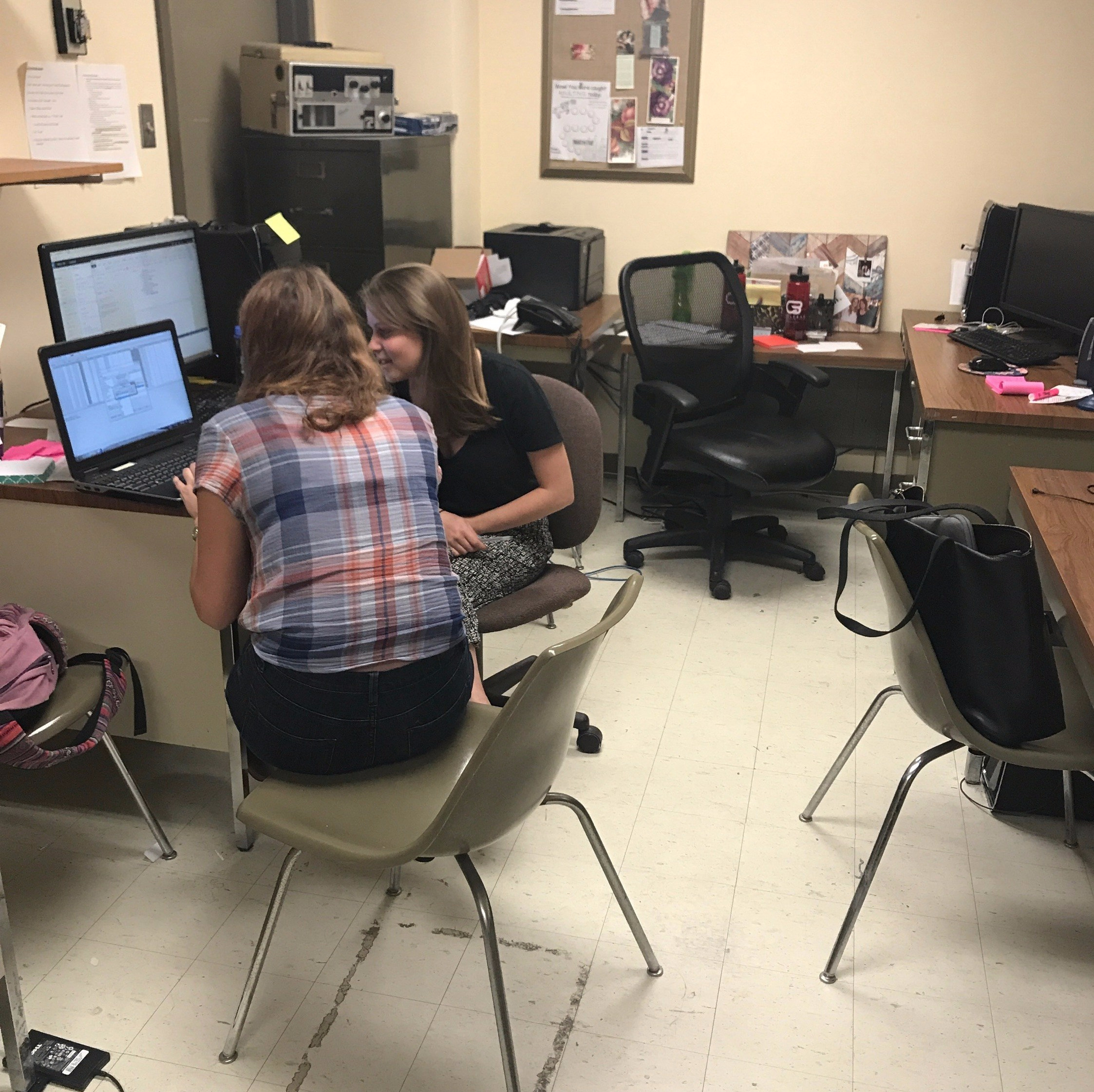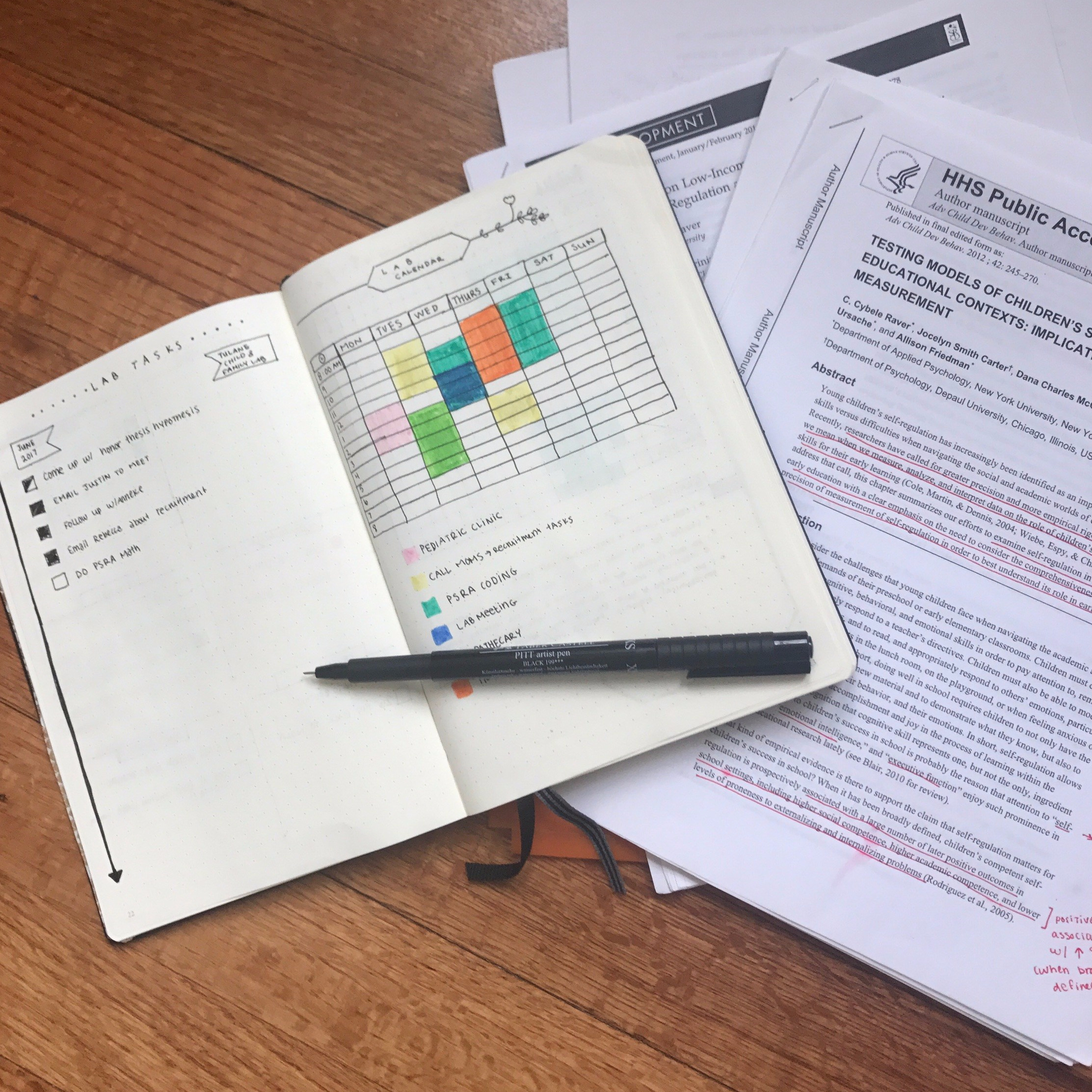Things have been quite busy over in the Child & Family lab so far! Luckily, our lab is located in Percival Stern on Tulane’s campus, and so my commute consists of a beautiful and mercifully short 10-minute walk from my house each morning. To the untrained eye, our lab space may look like a small and windowless box, however, I have come to see it for what it truly is: a carefully organized (thanks to our amazing lab head, Rebecca Lipschutz) space that functions as a systematic organism in which intelligent, passionate minds and statistical computer programming join forces in the name of child and family trauma research!!

As a little reminder, the mission of our lab is to understand more about how in families with violence exposure, mothers help their children cope with stressful situations and the various related variables within those interactions ranging from physiology heart-rate data, insightful parenting and self regulation. With two weeks of full lab functioning underway, we have all started to settle into our summertime schedules and lab roles! Each week, all of the lab research assistants have a list of both independent and collaborative lab assignments to complete ranging from recruitment, participant visits, data entry or transcriptions, coding, research, writing, planning etcetera.We have weekly lab meetings every Wednesday in which the whole lab comes together to check-in, update each other, work through any issues, and present the weekly research paper discussion (we each have a designated week and topic to present). This is my favorite time of the week because I get to learn so much, especially from the Graduate students because of their independent research and writing projects! My main lab tasks this summer include participant recruitment and scheduling, Preschool Self-Regulation Assessment (PSRA) data coding and literature review, and the beginnings of the research and writing process for my independent thesis that I will continue to work on into the upcoming year.
My weekly schedule usually consists of the following. Monday afternoons I visit to the Lakeside Pediatric Clinic where I get to talk to families about our study, and if they are eligible and interested, attain their contact information. Tuesdays and Thursdays are spent contacting all of our eligible families to schedule their visits, while Wednesday and Fridays I spend watching and coding our video recordings of the administration of the PSRA with our participants. Any unfilled pockets of time leftover are spent researching, writing, or meeting with Justin (one of the lab’s 3rd year Graduate Students) and Dr. Gray regarding my independent research project. My main advice to any readers
 who hope to pursue a research position in the future, or really any internship in which you have a diversity of tasks to complete and keep track of, is organization! I tend to be very forgetful, so I write everything, and I mean everything, in my planner.
who hope to pursue a research position in the future, or really any internship in which you have a diversity of tasks to complete and keep track of, is organization! I tend to be very forgetful, so I write everything, and I mean everything, in my planner.
If research is an opportunity that excites you, there are many ways to get involved–and they all involve taking initiative! I had it easy because Dr. Gray was my professor, and she mentioned during class that she ran a psychology lab. From their I emailed her and expressed my interest, filled out and application, interviewed, and jumped right in! However, you do not have to wait to hear about research opportunities to get involved, in fact, I reccomend that you don’t! A helpful method to discover available research positions that align with your interests is Tulane’s online resources. Tulane’s Center for Engaged Learning and Teaching (CELT) has a great Data Base of research opportunities organized by area of study and followed with tips and procedures regarding how to best reach out to the Principle Investigator. Beyond this resource, each academic department at Tulane has a website that includes a section about faculty research and possible involvement opportunities along with contact information. Here is an example from the Psychology department’s page!
I am very excited about all the lab work thus far, and can’t wait to keep everyone updated! I expect to learn a lot more in the coming weeks, especially about the research process as I embark on my own independent thesis project. Whether I am doing basic data entry, recruitment, PSRA coding, or having discussions with fellow RA’s about the work we are doing–I truly love working and learning in lab and its an experience that I would highly reccomend!
